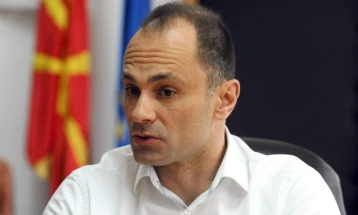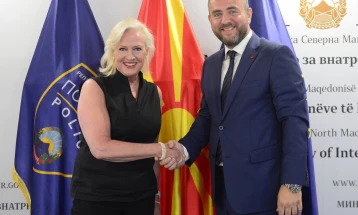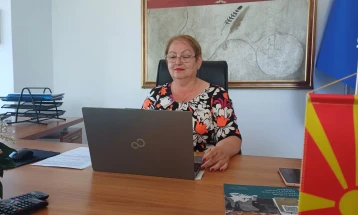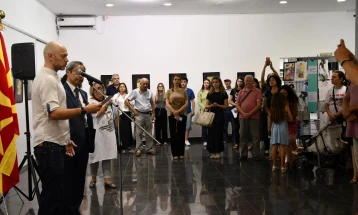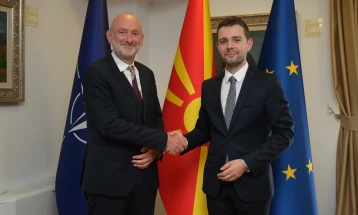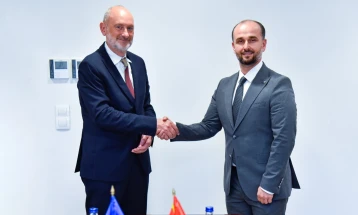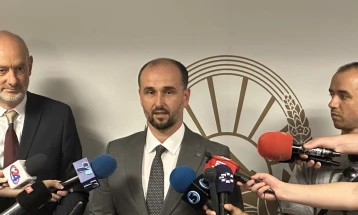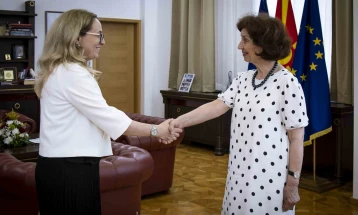Annual conference of Balkan defense chiefs
- Post By Ivan Kolekevski
- 12:16, 16 June, 2022
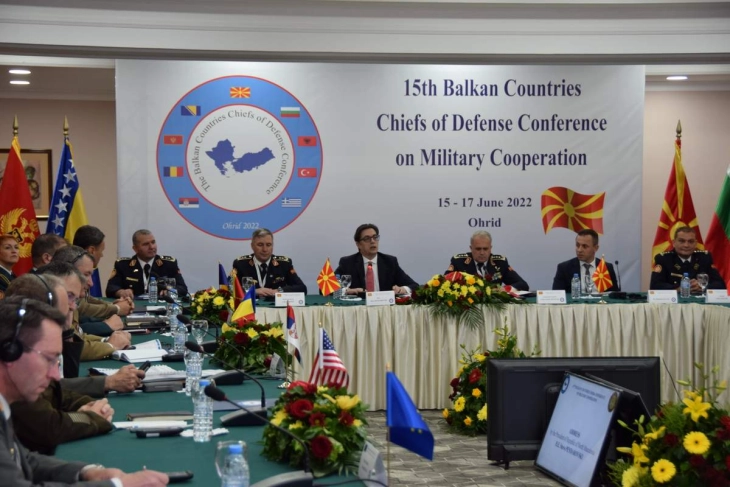
Skopje, 16 June 2022 (MIA) – “Use of armed forces in managing the latest challenges in a national and regional context (best practices)” is the main theme of the 15th annual conference of Balkan defense chiefs held in Ohrid on Thursday.
After Lieutenant General Vasko Gjurchinovski, Chief of GS of the Army of North Macedonia opened the conference, President Stevo Pendarovski gave an address as well, alongside Deputy Minister of Defense, Bashkim Hasani.
President Pendarovski spoke about the Russian aggression against Ukraine and how it reflects on European economies.
“You know it yourselves that the Russian aggression against Ukraine also threatens Europe as a whole. The Russian invasion caused an energy crisis, high inflation, a food crisis and a slowing down in the post-pandemic recovery of national economies. I’m convinced that the Balkans in the EU would make Europe more stable and safer, and NATO and the EU are the two guarantees for a safe and prosperous future of the continent,” Pendarovski said.
Addressing the audience, Deputy Defense Minister Hasani said that the Conference shows that the Balkan countries are united under one interest, which is to preserve security and peace and create a strong and developed region, an example of cooperation.
“We all have but one goal, to give the generations to come a stable and secure future, a future that they will also help build in this region in the future. We can and must do that, because this region has a lot to offer," Hasani said.
General Gjurchinovski stressed the importance and benefits of the decisions made so far, which have been of great importance for years, and they have contributed to more successful cooperation, which ultimately results in a better security environment for all countries in the region. Therefore, this initiative is of great importance for the Republic of North Macedonia.
“We promised that we will cooperate in the development of military relations to improve and enhance military cooperation in the region at all levels, and to contribute to an appropriate response to potential asymmetric and hybrid threats, said General Gjurchinovski in his introductory speech.
At the Conference, in addition to discussing the main topic, talks are underway to strengthen the ways of military cooperation of the Balkan countries, as well as ways to counter all security challenges, risks and threats in the region. This is primarily related to the implementation of common types of training, as well as the assessment of asymmetric threats in the Balkans.
At the end of the Conference, the defense chiefs will sign a joint statement reaffirming their strong commitment to expanding and strengthening military co-operation.
The focus of the Fifteenth Conference is on strengthening the military cooperation of the Balkan countries, by finding ways to counter all security challenges, risks and threats in the region, as well as continuing the ongoing processes for mutual confrontation with modern security challenges, initiated at previous conferences.
Most of the activities initiated by the Conference consist of training and education, which achieve the required level of interoperability, which enables joint activities in different situations. This is primarily related to the implementation of joint exercise activities, as well as the assessment of asymmetric threats in the Balkans.
Alongside Lieutenant General Gjurchinovski as the host of the conference, the Chiefs of the General Staffs of BiH, Bulgaria, Greece, Romania, Serbia, Turkey, Montenegro, as well as a representative of the Armed Forces of Albania, attended the conference. The Chief of the General Staff of Croatia observed the conference, as well as representatives of the EU Military Committee, JFC Naples and the US Army Command for Europe and Africa.
The forum of Chiefs of Balkan countries is composed of nine members, which include Albania, BiH, Bulgaria, Greece, North Macedonia, Romania, Serbia, Turkey and Montenegro. It was founded under the initiative of Greece and Turkey in 2006, and it was officially established on May 10 2007 in Brussels. dk/ik/
